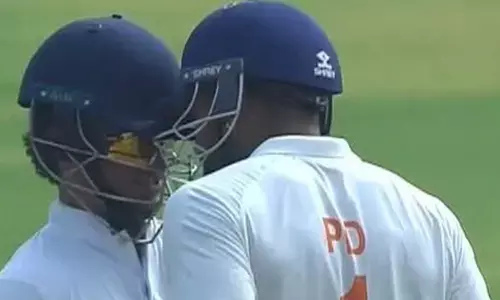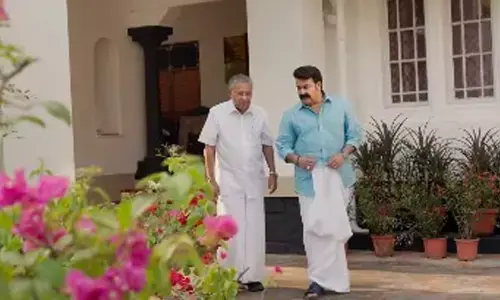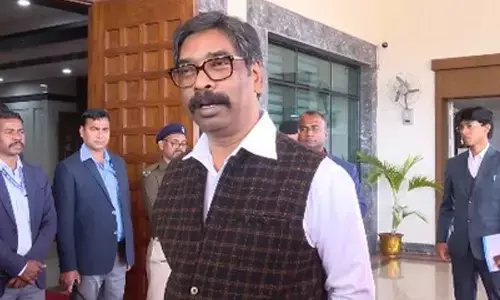Justice delayed to this Hyderabad person

Gyani Chand whose mother Sharda Bai had instituted a case in the court of IX Junior Civil Judge, Hyderabad, had collected the original documents on behalf of his mother after giving an undertaking to the court that he would produce the same as and when the court requires. Subsequently, his mother died.
In a classic example of delayed justice, one Gyani Chand of the city had to spend one week in prison, besides paying a fine of Rs 2,000. He was found guilty of the civil contempt by the High Court and punished.However, in appeal to the Supreme Court, judgment on which was delivered recently, three-judge bench headed by justice Anil R.Dave found the appellant not guilty of the offence of the contempt of court.
Gyani Chand whose mother Sharda Bai had instituted a case in the court of IX Junior Civil Judge, Hyderabad, had collected the original documents on behalf of his mother after giving an undertaking to the court that he would produce the same as and when the court requires. Subsequently, his mother died.
Gyani Chand was asked by the court to produce the original documents as per his undertaking. But he could not produce the original documents citing the cyclonic floods which devastated his house. The court recommended the initiation of contempt proceedings to the High Court.
The apex court explained the scope of Section 2 (b) of the Contempt of Courts Act, 1971 which defines the civil contempt. It postulates “wilful disobedience” of a court’s order, direction, etc.The court opined that failure to produce the original documents despite an undertaking having been given by the appellant due to the reasons beyond his control cannot be construed as “wilful disobedience,” hence there was no contempt of the court.
So far so good. But what is really baffling the legal fraternity is: Who will compensate the appellant for his deprivation of freedom for one week, leave alone the monetary loss and the social stigma? Was it not expected of the highest court of the land to come down heavily on both the lower civil court as well as the High Court for having failed to read and implement Section 2 (b) of the Contempt of Courts Act, 1971 which does not require an expert mind to interpret?Instance of leniency In a high profile case involving a senior IPS officer for the offences of Sections 354 and 509 of the Indian Penal Code (IPC) the Supreme Court has once again taken a lenient view and reduced the jail term of the appellant-accused.
In the sensational Ruchika’s case, SPS Rathore Vs. CBI & Anr, disposing of the appeal by the accused police officer by a judgment dated September 23 a division bench comprising justices V Gopala Gowda and R K Agrawal said : “With regard to sentence of the appellant-accused, learned senior counsel on his behalf has pointed out certain mitigating factors which are – old age of the appellant-accused, health ailments, responsibility of looking after the unmarried daughter suffering from congenital heart disease, past meritorious service and prolonged trial.
Keeping in view the aforementioned factors especially the old age and physical condition of the appellant-accused, we do not think it expedient to put him back in jail. While we uphold the findings as to the guilt of the appellant-accused, we are of the opinion that the cause of justice would be best subserved when the sentence of the appellant-accused would be altered to the period already undergone. We, therefore, reduce the sentence of the appellant to the period already undergone by him as a special case considering his very advanced age.”
While it is true that the wisdom of a court cannot be called in question, still with utmost respect certain important points taken note of by the court in its 46 pages judgment seem to have been overlooked. The appellant-accused was a very senior IPS officer of IG rank at the time of committing the offence.
He, therefore, could exert undue influence on the police, The victim was a minor unmarried girl of just 15 years of age who committed suicide subsequently, the accused had left no stone unturned by approaching higher judiciary several times to escape the clutches of law, atrocities on women all over the world are on a rise, etc.
Finally, there is nothing wrong in evoking special inherent powers by the apex court, but at the same time it should have been kept in mind the fact that the balance of convenience was in favour of the victim and her family. The adage, justice should not only be done but it should also seem to have been done also ought to have been given the uppermost consideration by the apex court.








